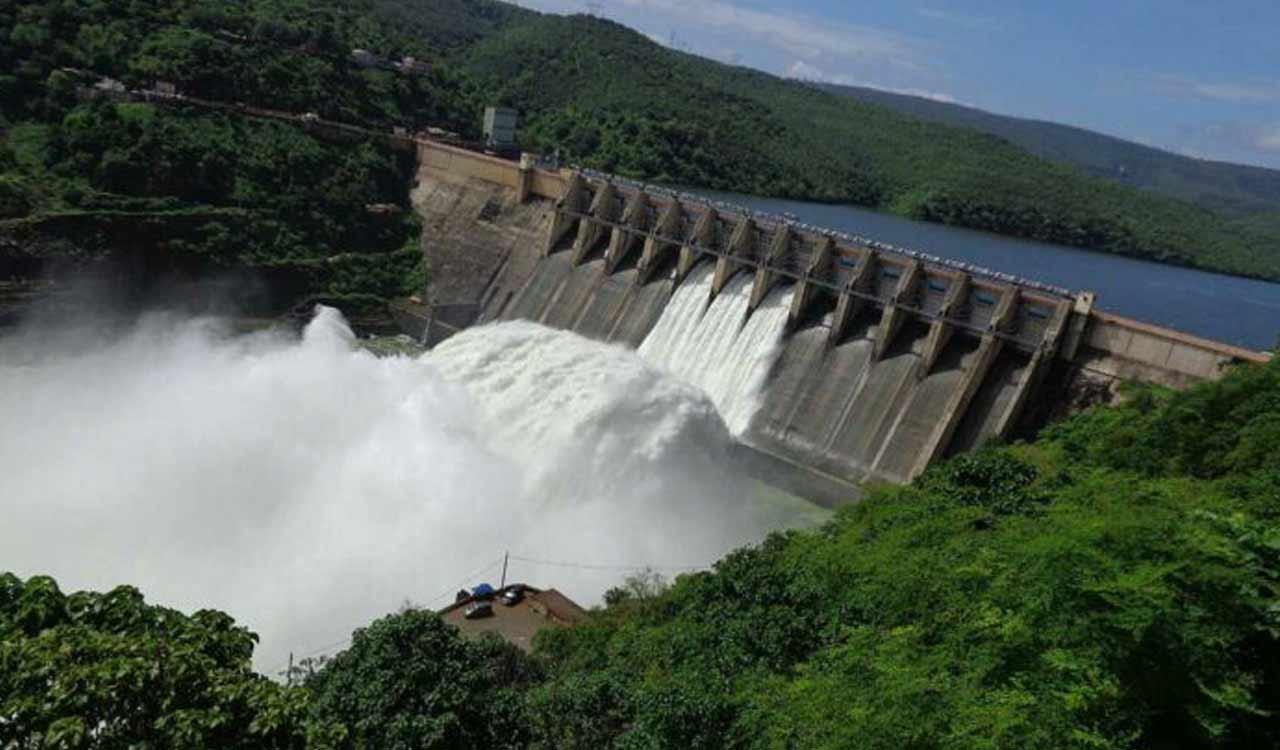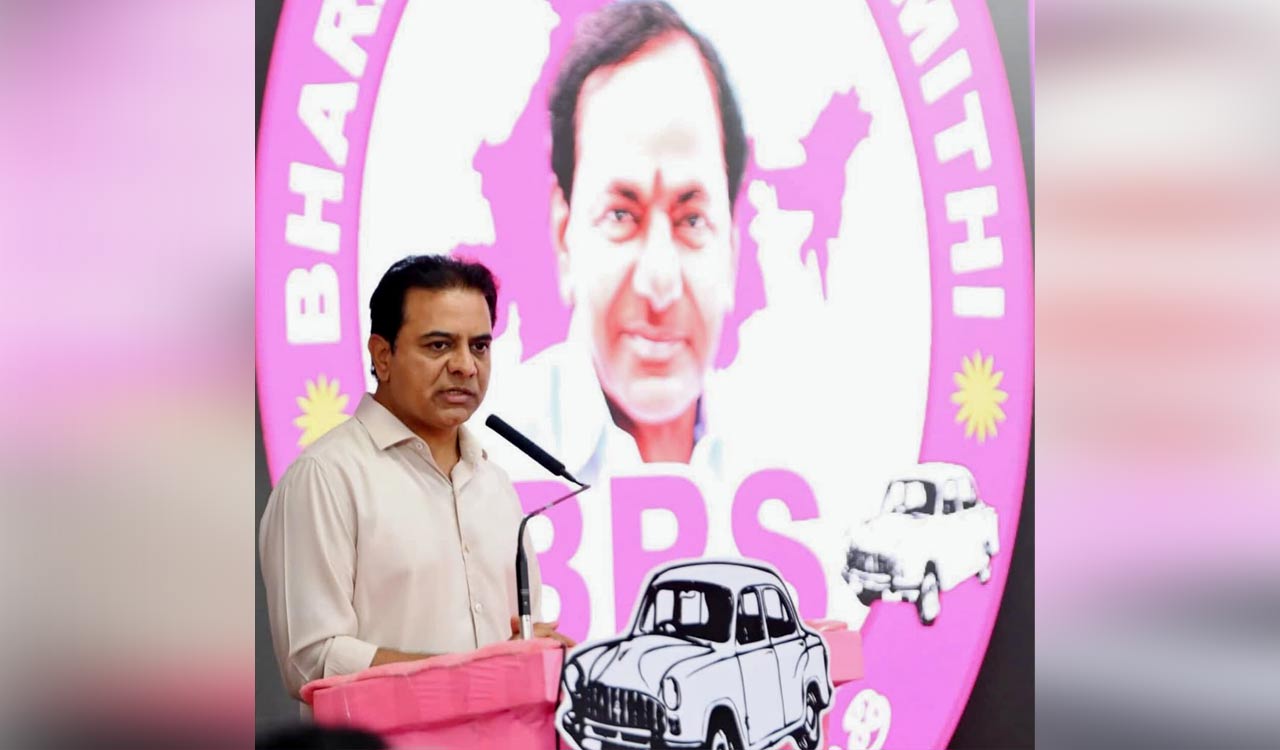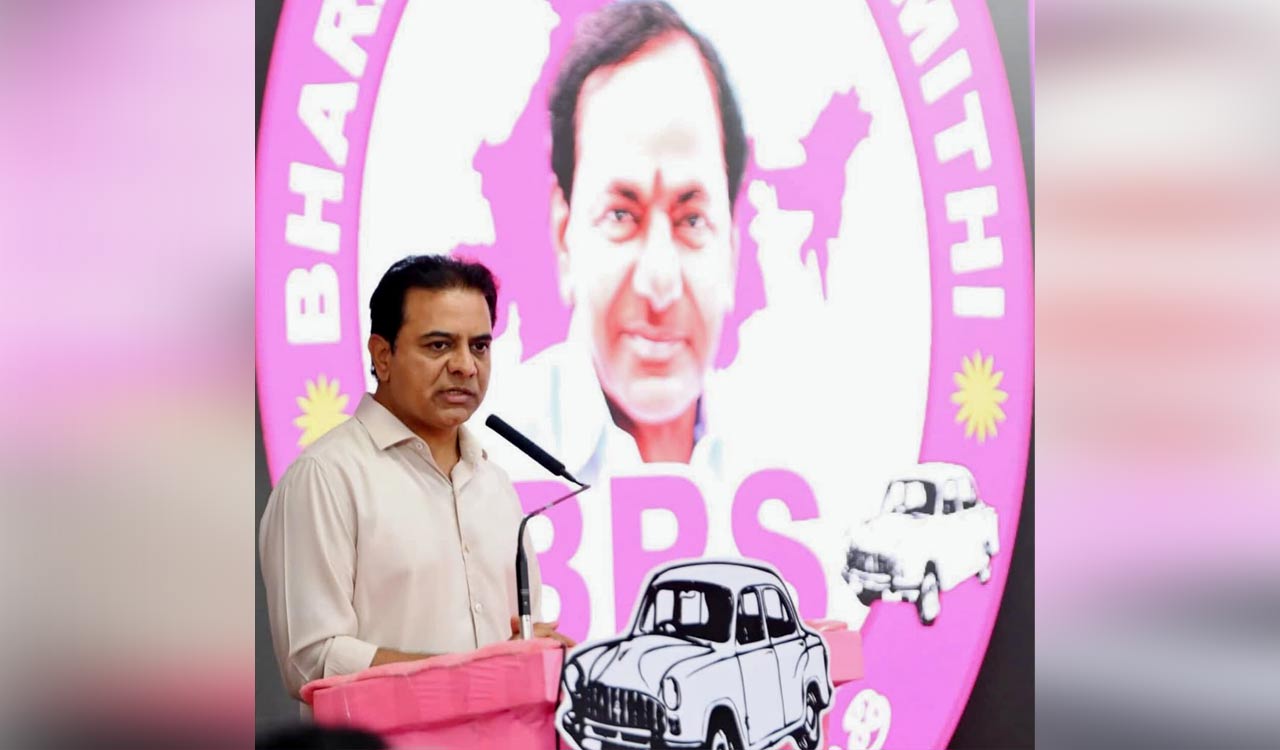Telangana faces criticism over Krishna water demands
Telangana leaders’ conflicting claims on Krishna water allocations—from 500 TMC to 904 TMC—have drawn sharp criticism from experts, opposition, and even ruling party circles. Experts warn such flip-flops may weaken the State’s case at the tribunal

Hyderabad: As the Krishna Water Disputes Tribunal II moves closer to a verdict on water allocations between Telangana and Andhra Pradesh, the Congress-led government in Telangana faces growing scrutiny over its inconsistent claims. What began as a firm pledge to not “surrender a drop” of the State’s share has turned into a series of fluctuating demands, ranging from 500 TMC to over 900 TMC, drawing sharp criticism from opposition leaders, water experts, and even within ruling party circles. Critics warn that these rhetorical shifts could weaken Telangana’s position, potentially affecting irrigation prospects in drought-prone districts like Mahabubnagar and Nalgonda.
The tribunal, established under the Andhra Pradesh Reorganisation Act of 2014 to resolve lingering disputes over Krishna River waters, has been hearing arguments for months. A favourable outcome could ensure vital water for Telangana’s farmlands, but the State’s current wavering advocacy risks diluting its case, experts say.
“Focusing on defensible, evidence-based claims is crucial to avoid backlash from the tribunal or neighbouring States,” noted a senior hydrologist who declined to be named, emphasising the need for consistency in interstate water negotiations.
Contradictory statements from top leaders of the State government on Telangana’s entitlement have triggered a fresh controversy. Recently, Irrigation Minister N Uttam Kumar Reddy staked a claim for 763 thousand million cubic feet (TMC) of dependable water for Telangana, plus unrestricted access to surplus flows beyond average levels. He argued that the figure is grounded in “scientific and equitable sharing principles recognised globally”. This is based on Telangana’s 68.6 per cent share of the basin’s catchment area, its population within the basin, the extent of drought-prone regions, and cultivable land.
The Irrigation Minister’s calculation includes: 555 TMC from 75 per cent dependable waters, 43 TMC from 65 per cent dependable waters, 120 TMC from average flows, and 45 TMC from Godavari diversions. This totals 763 TMC from an estimated 811 TMC of dependable flows (at 75-65 per cent reliability), roughly 70 per cent for Telangana, plus liberty to tap into all surplus over average flows.
Yet, just 11 days ago, on September 13, Chief Minister A Revanth Reddy increased the demand during preparations for tribunal arguments, seeking 904 TMC as Telangana’s “total entitlement” involving net flows, surplus, and even flood waters.
The claim drew immediate criticism from experts.
“This is ignorant posturing, an inflated figure that exceeds the river’s reliable yield of 2,130 TMC when shared equitably with upstream States like Maharashtra and Karnataka,” said one analyst. “The strong, realistic case is around 575 TMC, or 71 per cent of the 811 TMC dependable yield, aligned with catchment shares.”
The Chief Minister’s claim contrasts with earlier tactics, including advocacy for a No Objection Certificate (NOC) for 500 TMC from Andhra Pradesh as an “interim utilisation” negotiation ploy. Such flip-flops, oscillating between absolute volumes in TMC and vague percentages, or dependable versus total flows including floods, have been criticised as opportunistic by the opposition Bharat Rashtra Samithi (BRS).
BRS leaders have seized on the discrepancies, accusing the Congress of “ignorance and political compromises” that betray Telangana’s interests.
State needs to address bigger threats
“These contradictory statements by the Chief Minister and the Irrigation Minister on Telangana’s entitlement to Krishna waters may weaken the State’s case at a critical juncture,” said V. Prakash Rao, former Chairman, Telangana Water Resources Development Corporation. He added that it was not the time to expose internal confusion over key river water issues.
Compounding Telangana’s challenges is the looming threat from Karnataka’s plan to raise the height of the Almatti Dam on the Krishna, a project that could drastically reduce downstream flows, said Prakash Rao, issuing a stark warning. “Once land acquisition is completed, it will be difficult to challenge Almatti legally. The priority must be securing a say in financial allocations for the proposal. If the dam height is raised, Telangana may not get even a drop of water once in three years.”
Related News
-
Telangana records 299 per cent surge in IT exports: KTR credits BRS rule
-
Telangana records 299 per cent surge in IT exports: KTR credits BRS rule
-
Hyderabad braces for early summer as temperatures set to climb to 34 degree Celsius
-
TFA distributes over 19,500 footballs to 3,171 schools across Telangana
-
EC suspends seven West Bengal officials over SIR misconduct
2 mins ago -
BRS wins Jammikunta Municipal Chairman post with 16 votes
5 mins ago -
Wandering tiger returns to reserve forest after scaring villagers in Siddipet
7 mins ago -
Pahalgam attack victim’s daughter still waits for promised govt job
11 mins ago -
Hyderabad: Frequent outages raise fears of power holidays among industries
12 mins ago -
Hyderabad Police transfers 63 inspectors in major reshuffle
22 mins ago -
EAGLE Force, Cyberabad Police arrest three cocaine peddlers in Kondapur
26 mins ago -
BRS wins Raikal municipal chairman post with seven votes
56 mins ago




